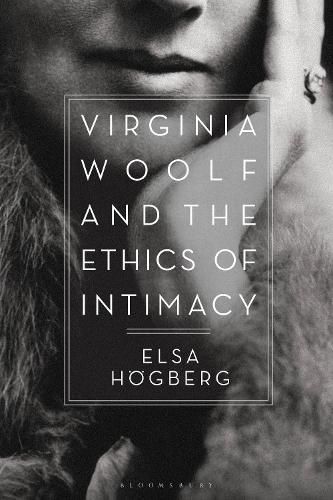Readings Newsletter
Become a Readings Member to make your shopping experience even easier.
Sign in or sign up for free!
You’re not far away from qualifying for FREE standard shipping within Australia
You’ve qualified for FREE standard shipping within Australia
The cart is loading…






Revisiting Virginia Woolf’s most experimental novels, Elsa Hoegberg explores how Woolf’s writing prompts us to re-examine the meaning of intimacy. In Hoegberg’s readings of Jacob’s Room, Mrs Dalloway, To the Lighthouse and The Waves, intimacy is revealed to inhere not just in close relations with the ones we know and love, but primarily within those unsettling encounters which suspend our comfortable sense of ourselves as separate from others and the world around us. Virginia Woolf and the Ethics of Intimacy locates this radical notion of intimacy at the heart of Woolf’s introspective, modernist poetics as well as her ethical and political resistance to violence, aggressive nationalism and fascism. Engaging contemporary theory - particularly the more recent works of Judith Butler, Luce Irigaray and Julia Kristeva - it reads Woolf as a writer and ethical thinker whose vital contribution to the modernist scene of inter-war Britain is strikingly relevant to critical debates around intimacy, affect, violence and vulnerability in our own time.
$9.00 standard shipping within Australia
FREE standard shipping within Australia for orders over $100.00
Express & International shipping calculated at checkout
Revisiting Virginia Woolf’s most experimental novels, Elsa Hoegberg explores how Woolf’s writing prompts us to re-examine the meaning of intimacy. In Hoegberg’s readings of Jacob’s Room, Mrs Dalloway, To the Lighthouse and The Waves, intimacy is revealed to inhere not just in close relations with the ones we know and love, but primarily within those unsettling encounters which suspend our comfortable sense of ourselves as separate from others and the world around us. Virginia Woolf and the Ethics of Intimacy locates this radical notion of intimacy at the heart of Woolf’s introspective, modernist poetics as well as her ethical and political resistance to violence, aggressive nationalism and fascism. Engaging contemporary theory - particularly the more recent works of Judith Butler, Luce Irigaray and Julia Kristeva - it reads Woolf as a writer and ethical thinker whose vital contribution to the modernist scene of inter-war Britain is strikingly relevant to critical debates around intimacy, affect, violence and vulnerability in our own time.